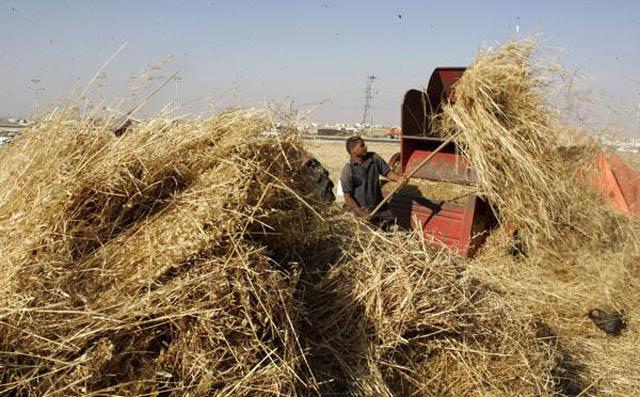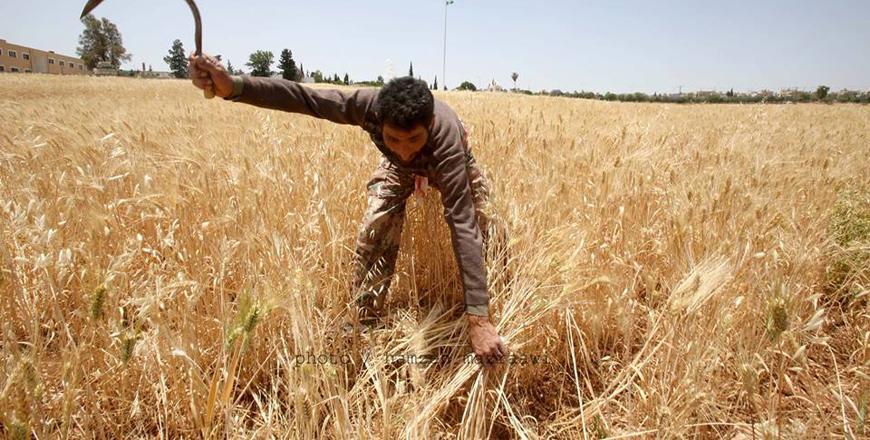You are here
Gov’t to buy farmers’ wheat, barley at preferential rates
By Hana Namrouqa - Jun 14,2017 - Last updated at Jun 14,2017

Every year between May and August, the Ministry of Agriculture buys wheat and barley from farmers at prices preferential for producers (File photo)
AMMAN — The government has raised the price at which it will buy wheat and barley from farmers in compensation for a “weak” production season, an official said on Tuesday.
Every year between May and August, the Ministry of Agriculture buys wheat and barley from farmers at prices preferential for producers, ministry spokesperson Nimer Haddadin told The Jordan Times.
"The government will buy each tonne of wheat or barley this year for JD500, instead of JD450 per tonne, like the previous year," Haddadin noted.
Last week, the government allocated JD12 million for buying an expected yield of 30,000 tonnes of wheat and barley from the local market.
"The decision seeks to support farmers who witnessed a weak production season because of low rainfall during winter. A weak rainy season caused lower production of grains this year," he said.
During the past year, the government allocated JD24 million for buying wheat and barley from farmers, who produced approximately 70,000 tonnes of wheat and barley.
Three main centres in the northern, central and southern regions of the Kingdom have been earmarked to receive farmers’ wheat and barley harvests, according to the ministry.
The centres receive two kinds of wheat from farmers, one for producing flour and the second, of a higher quality, will be used for seeds. The government will also purchase two types of barley from farmers, one to be used for producing seeds, and the other as fodder for livestock.
The government buys the wheat and barley harvest at preferential prices to encourage farmers to grow grains, according to the ministry.
Farmers grow wheat across the country, but grains are mainly cultivated in Irbid and Houran plains in the north, Madaba and Husban in the central region and Arrabeh in the southern Governorate of Karak.
The Kingdom, which consumes more than 80,000 tonnes of wheat per month, imports over 96 per cent of its wheat needs, as domestic production covers only around 4 per cent of demand.
Jordan imports the majority of its wheat from several countries, including Ukraine, Kazakhstan, Russia, Romania and the United States.
Related Articles
AMMAN – The government started this week buying wheat and barley from farmers at preferential prices in favour of producers, an official sai
AMMAN — The government has started buying wheat and barley from farmers at preferential prices, an Agriculture Ministry official said on Wed
AMMAN — The Ministry of Agriculture has purchased around 21,000 tonnes of wheat and barley from farmers this year, an official said on Satur
















